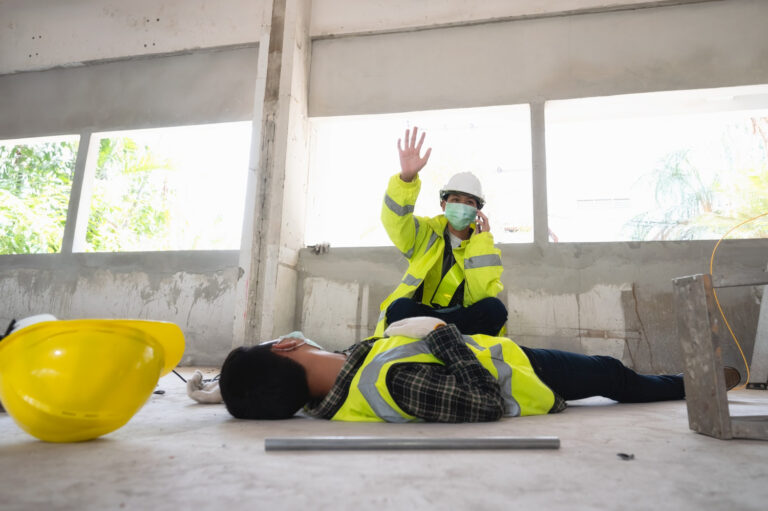How to Sue Hospital for Wrongful Death
Suffering the loss of a loved one due to hospital negligence can be deeply painful and overwhelming. At LawOfficeOfBrianKelly, even though we specialize in divorce cases, our dedication to serving justice extends beyond family law. In this guide, we’ll walk you through the essential steps to take if you believe you have a case for wrongful death against a hospital. With our expertise and commitment, we aim to support you in understanding your legal rights and pursuing the justice your loved one deserves.
As indicated in several legal sources, first, gather all medical records and proof of negligence. Then, consult a wrongful death attorney to assess your case. Finally, file a lawsuit following state-specific procedures.
What Is Wrongful Death?
Wrongful death results from the negligence or misconduct of another individual, company, or entity.
In a basic sense, this can happen in different situations like car accidents, mistakes by doctors, workplace injuries, or crimes. The main point in a wrongful death claim is showing that someone else’s actions or lack of actions caused the death and it could have been avoided.
At the base, these cases can lead to money for the deceased person’s family to help with medical bills, funeral expenses, lost income, and emotional pain. If you think your loved one died wrongfully, it’s important to get legal advice to know your rights and options for seeking justice.
Proving Hospital Negligence
Proving hospital negligence reveals that the institution failed in its duty of care, leading to patient harm or injury.
For the most part, to prove that a hospital was negligent, you need to show that the hospital failed to provide the level of care that a reasonable healthcare provider would. This can be done by using evidence like medical records, statements from witnesses, and expert opinions.
You must show that there was a doctor-patient relationship, meaning the hospital had a duty to care for the patient. Then, you need to prove that the hospital did something wrong, like misdiagnosing, giving the wrong medication, making a mistake during surgery, or not monitoring the patient properly. To put it simply, next, you have to demonstrate that this mistake directly caused harm to the patient. Medical evidence linking the hospital’s error to the patient’s injuries or worsening condition is very important.
It’s also important to check if the hospital had proper policies and protocols to prevent such mistakes, and whether these were followed. Ignoring established rules can be strong evidence of negligence.
Steps to File a Wrongful Death Lawsuit
To file a wrongful death lawsuit, you must first verify if you are legally eligible to represent the deceased.
Collect any proof of the actions that caused the death. This could be things like police reports, medical records, and statements from witnesses. Talk to a lawyer who specializes in wrongful death cases to go over what you have and see if you can make a case. Your lawyer will then file a complaint in the right court, explaining the details of the wrongful death claim. The person you are suing will get the complaint and have a chance to respond.
By and large, the case will move through the court system, including gathering evidence, trying to settle, and maybe even going to trial. If you win, the court may give you money to make up for the loss of the deceased person’s financial support and emotional guidance. It is important to follow all the legal steps and deadlines when filing a wrongful death lawsuit to give yourself the best chance of success.
Important Deadlines to Remember
Important deadlines are key milestones that can often determine the success or failure of a project.
It’s important to remember deadlines to avoid problems like late submissions, penalties, or missed opportunities. To stay on top of deadlines, prioritize your tasks and set reminders. Meeting deadlines shows you’re responsible, reliable, and professional. Good time management helps you meet deadlines efficiently. Don’t procrastinate because it can cause you to miss deadlines; start tasks early and give yourself enough time to complete them.
At the base, setting realistic deadlines and breaking tasks into smaller steps can make them more manageable and less overwhelming. Working well with others can also help meet deadlines. Focus on the most urgent and important tasks first. Reflecting on past missed deadlines can remind you why it’s important to meet them in the future. By staying organized, planning ahead, and being proactive, you can remember and meet important deadlines successfully.
Finding the Right Lawyer
The right lawyer can significantly impact the outcome of your legal issues.
Figure out what kind of legal issue you have and what sort of lawyer you need. Look into their experience, reputation, and reviews from past clients. Find lawyers in your area who handle cases like yours.
Once you have a list of possible lawyers, set up meetings with them to talk about your case and check if they are qualified. Ask about their experience with similar cases, how often they win, and how they plan to handle your case. In short, also make sure to ask about their fees and payment options to see if it fits your budget.
When choosing a lawyer, go with your gut feeling and pick someone you feel comfortable talking to. It’s important to get along with your lawyer since you’ll need their help throughout the legal process. The best lawyer for you will be someone who knows their stuff, has good experience, is trustworthy, and can represent you well in court.

The Takeaway
In the unfortunate event of wrongful death at a hospital, it is important to gather all necessary evidence, such as medical records and expert opinions, to build a strong case.
What Law Office Of Brian Kelly is finding good to is, consulting with a reputable attorney specializing in medical malpractice can help work through the various problems that may occur of the legal process and seek justice for your loved one’s untimely passing.







